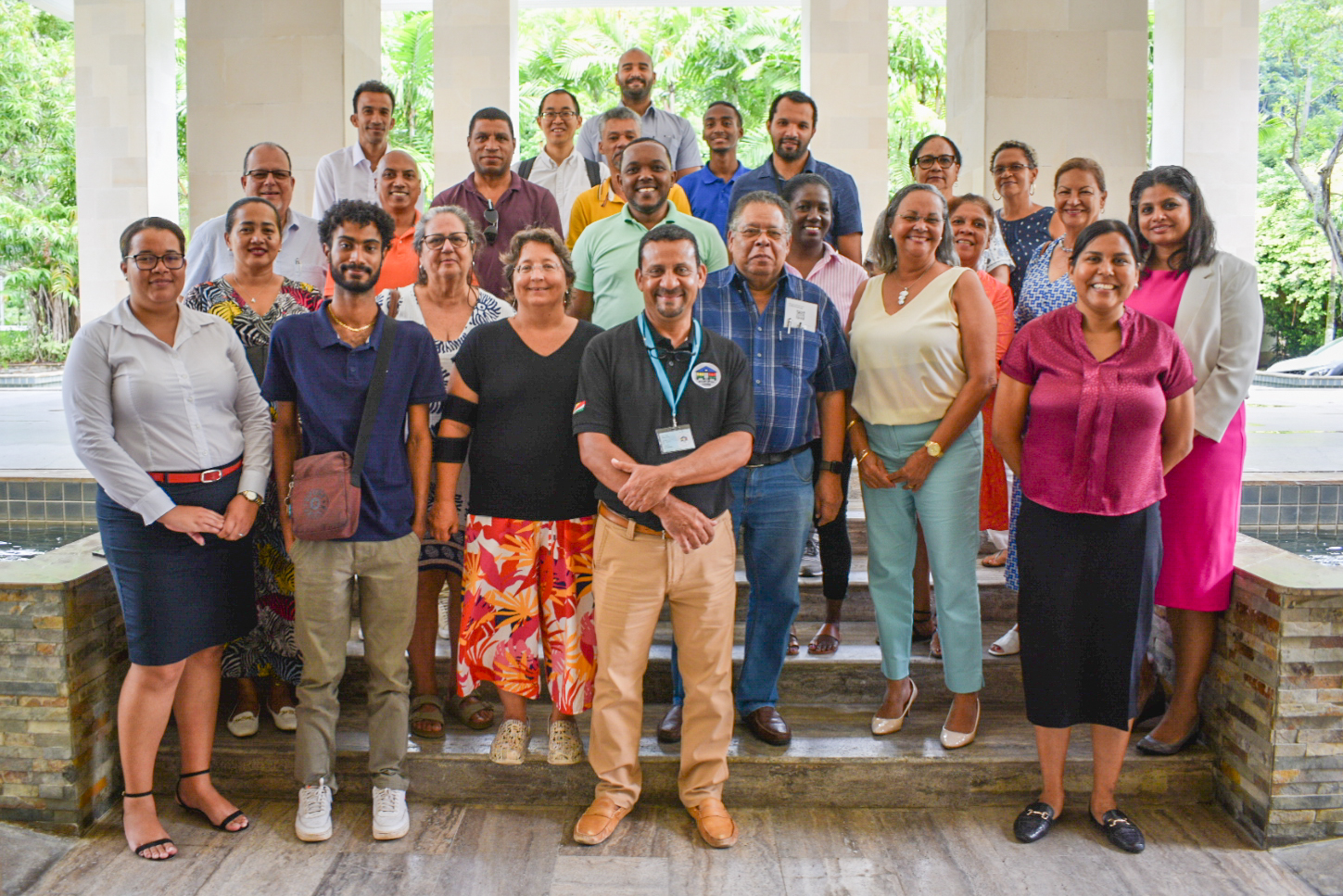Actionable insights provided on adopting photovoltaic (PV) systems, spotlighting their environmental, operational, and economic advantages.

The workshop was attended by SSHEA members, representatives from the Ministry of Agriculture, Climate Change, and Environment (MACCE), UNDP Seychelles staff, solar energy providers and financial institutions.
In a drive toward sustainability, the United Nations Development Programme (UNDP) in Seychelles in partnership with the Seychelles Small Hotels & Establishments Association (SSHEA), held a workshop on Thursday 5 December to present the findings of a feasibility study on integrating solar energy into small hotels and tourism establishments. This initiative is part of a broader effort to reduce help reduce energy costs, lower carbon emissions, and align the local hospitality sector with global sustainability standards.
The workshop was attended by SSHEA members, representatives from the Ministry of Agriculture, Climate Change, and Environment (MACCE), solar energy providers and financial institutions. Delivered in a hybrid format, the session provided actionable insights on adopting photovoltaic (PV) systems, spotlighting their environmental, operational, and economic advantages.
Towards Sustainable Energy in Seychelles
During the opening remarks, UNDP Seychelles’ Programme Analyst Ms. Preethi Sushil Nair highlighted the critical link between renewable energy adoption and Seychelles' ecological identity: “Investing in renewable energy technologies is an investment in our planet and the identity of every Seychellois as guardians of some of the world’s most unique and fragile ecosystems. By shifting towards sustainable energy, the legacy of conservation and biodiversity that define Seychelles will remain intact for generations to come.”
Mr. Clifford Bastille, Policy Analyst at MACCE, outlined the country’s energy strategy, which focuses on diversifying energy sources and strengthening resilience to climate change. He highlighted Seychelles’ commitment to achieving a 15% renewable energy mix by 2030, reducing energy intensity by 10%, and reaching net-zero emissions by 2050 under the UNDP Climate Promise Initiative. He noted that while large-scale national efforts are underway, small hotels’ adoption of PV systems could catalyse broader industry shifts to position the hospitality sector as a key player in Seychelles’ green energy transition.
The SSHEA representative, Mr. Josue Adeline, highlighted the need for more education to address knowledge gaps: “When we first approached establishments, many didn’t understand what PV systems were. Simplifying terms, removing jargons and communicating through accessible tools such as booklets and videos supported by UNDP, helped to simplify solar energy and get members interested.”
Insights from the feasibility study
During the workshop, the feasibility study conducted across 28 small hotel establishments was presented by the consultant, Elke Talma. The findings from site inspections and energy consumption analyses were shared with participants, providing practical recommendations for PV system installations, alongside energy needs and cost-benefit analyses, which will be included in tailored reports for each establishment. The study aims to equip SSHEA members with the data needed to approach PV installers and explore installation possibilities. Members will also be able to use the reports to initiate discussions with suppliers, enabling informed decision-making and cost estimations. It is also expected that collective action will help reduce the costs and potentially make the transition more affordable for the members.
One of the major concerns of participants included the high upfront cost of PV systems. To address these issues, representatives from the Mauritius Commercial Bank (MCB) and the Development Bank of Seychelles (DBS) presented tailored financial solutions, including loans and incentives, to tackle the challenges. These financing options strengthened confidence among participants, showcasing how transitioning to solar energy can be both environmentally and financially viable.
A greener path forward
The workshop highlighted the importance of collaboration, education, and innovation in making solar energy a reality for Seychelles' small hotels. By addressing knowledge gaps and financial barriers, the initiative paves the way for a greener and more competitive hospitality sector. Participants left with a clear call to action: adopting PV systems offers significant environmental and economic benefits, paving the way for a greener future in Seychelles.

 Locations
Locations



